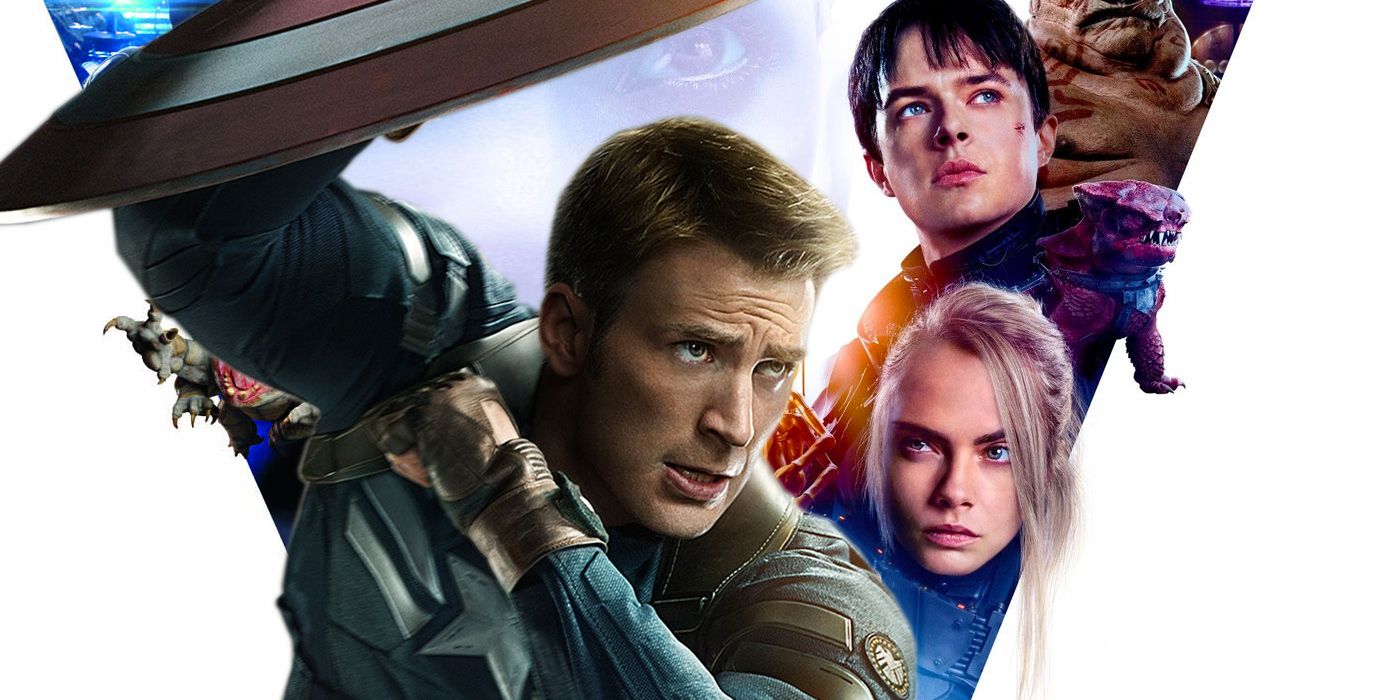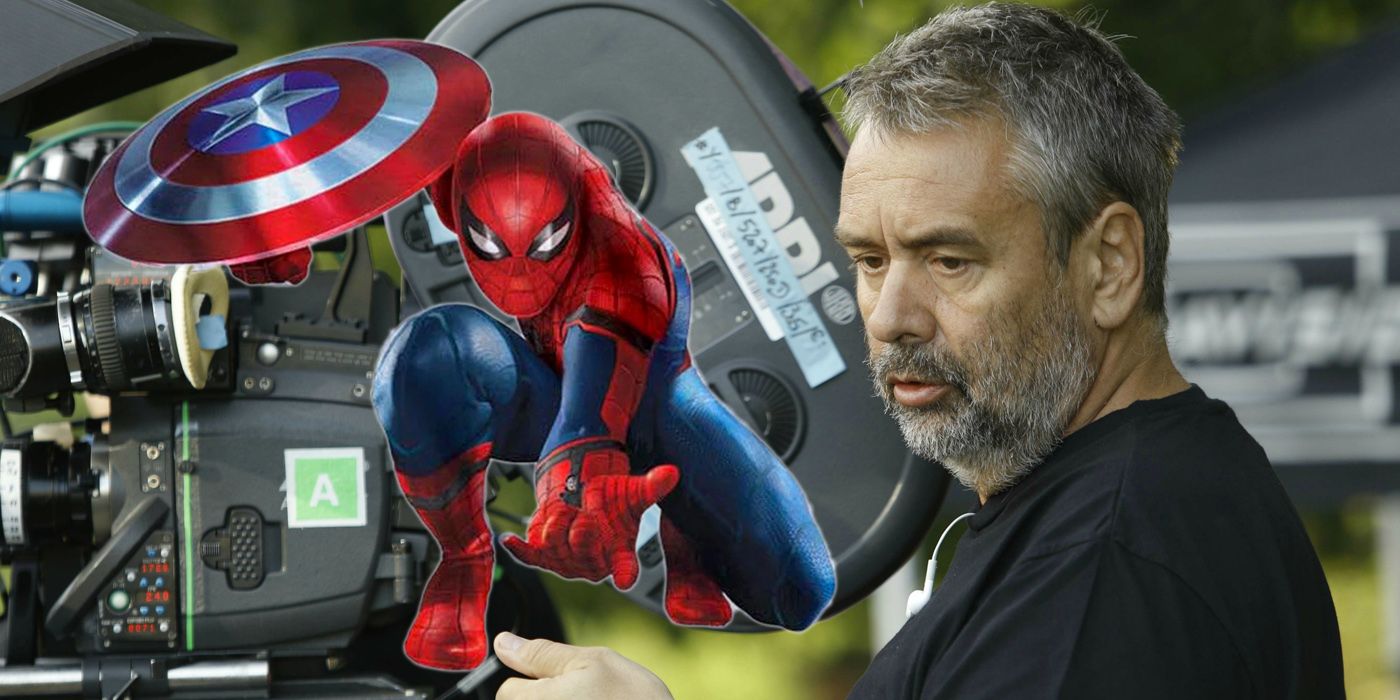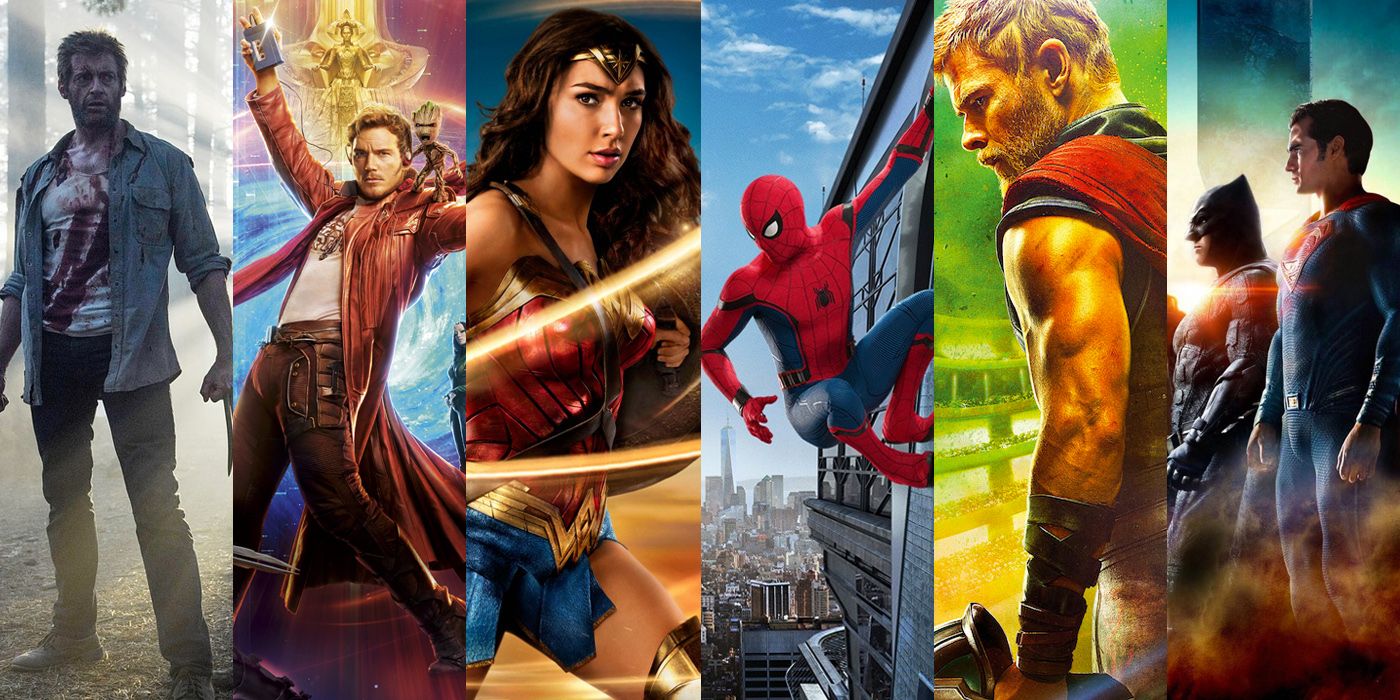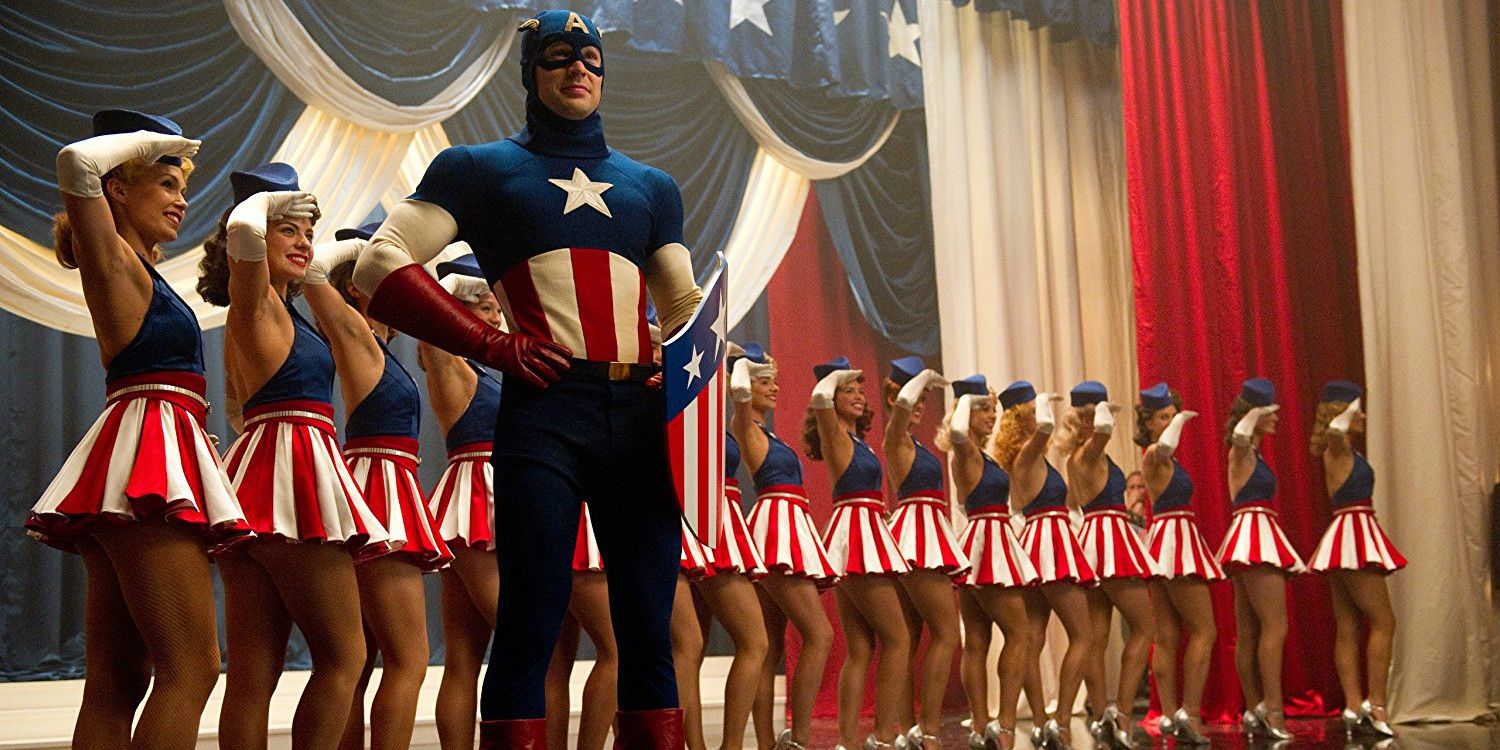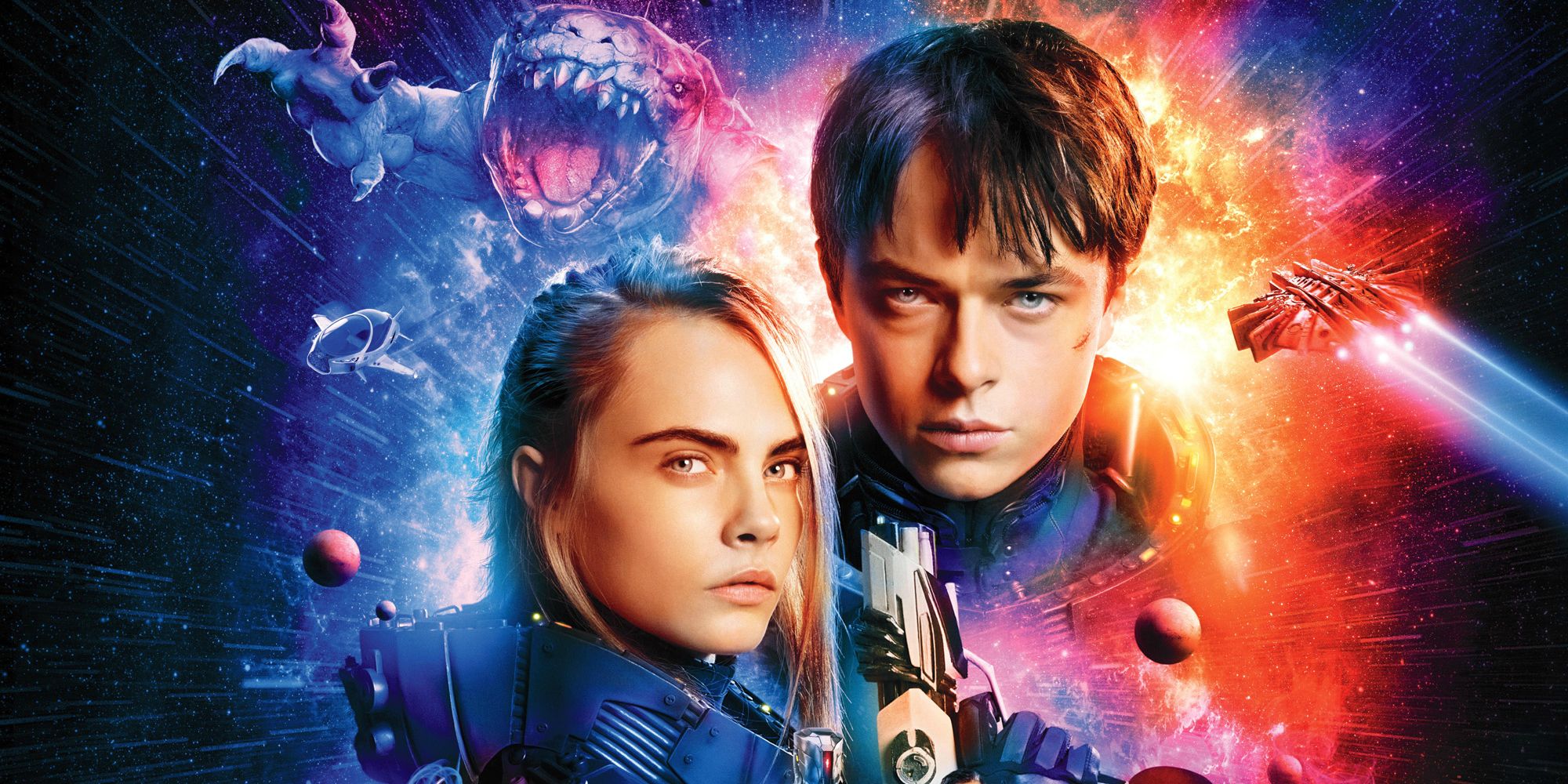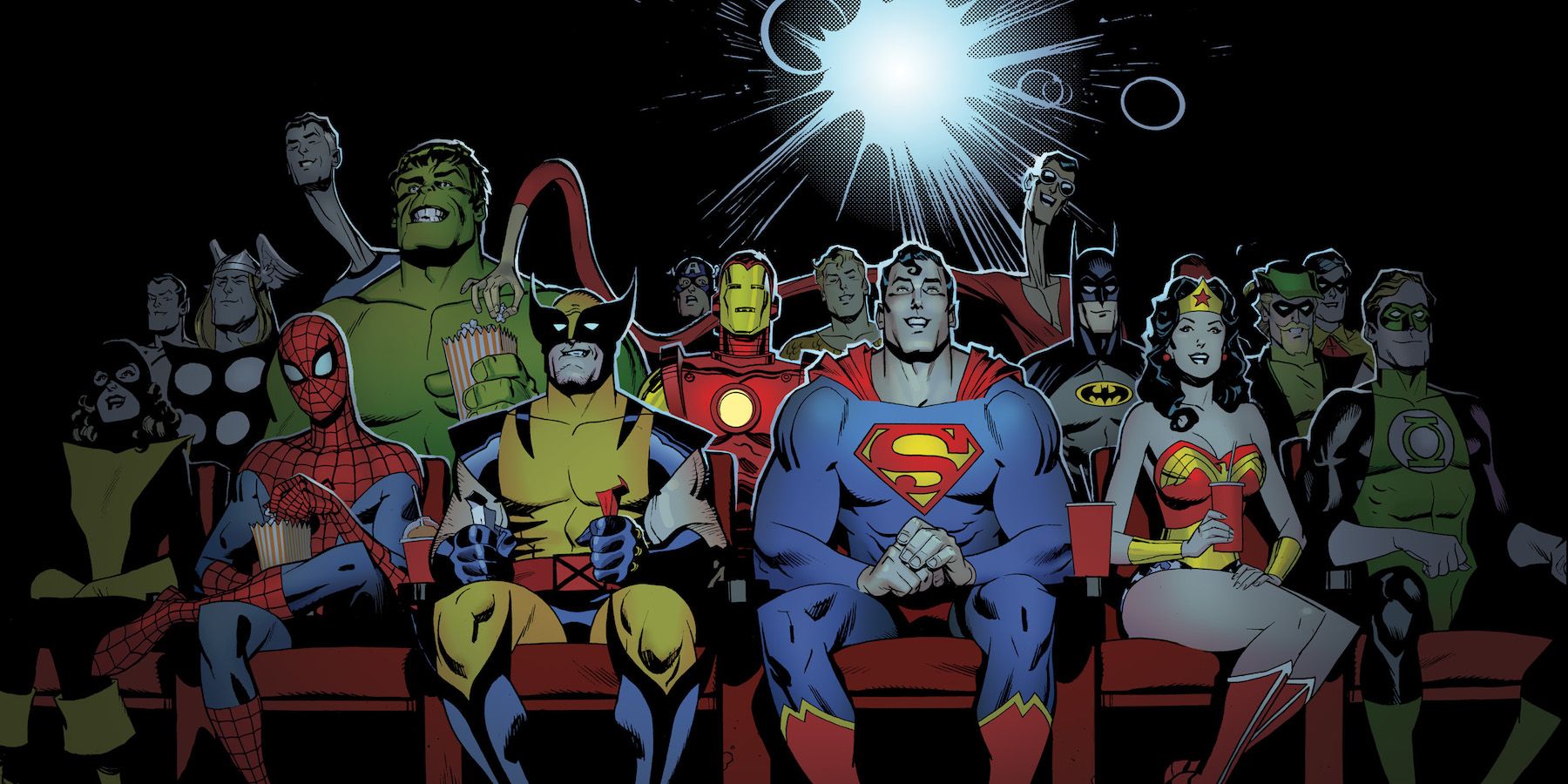Dear Luc Besson, can you just stop it with your crusade against superhero movies?We all know superheroes have become the dominant force in cinema (we're wary of calling them a genre, which we'll get into later). This year there are six films from three different franchises and four different studios, costing from $97 million to well over $200 million: Logan, Guardians of the Galaxy Vol. 2, Wonder Woman, Spider-Man: Homecoming, Thor: Ragnarok and Justice League. The four released so far are in the Top 10 at box office both domestically and worldwide, and you can expect the latter two to equal if not surpass them. Beyond proven audience interest, these are widely regarded as good films as well; all four are Certified Fresh on Rotten Tomatoes with comparable audience ratings and, while that site is not a definitive measure of quality, in a summer full of big budget movies awarded green splats it shows a general appreciation.And it's not hard to see why this is the case. In their source comic books, the superhero has transformed from the initial-yet-appealing power fantasy (or propaganda, which you can be sure we'll get to) into modern myth, constantly evolving to reflect the times and a maturing medium. And we're seeing a similar development on the silver screen; while many classic incarnations went for broad archetypes and character traits, in the past decade we've seen the types of movies made about once-spandexed heroes diversify from simple action tentpoles into crime thrillers, aging meditations, and trippy fantasies, all the while improving in technical adeptness and story ambition.That's why the superhero bubble refuses to pop; rather than redoing the same basic ideas that turned supers into money-spinners in the early 2000s, through creative studios - especially Marvel, although now Fox is outreaching them in daringness - we're getting refinements of formula and evolution of tone. And at the core of each success is the characters - real people who struggle with real, albeit it extraordinary, concerns - be that existentialism or a supervillain. That's instantly relatable. And so, while we've had some middling or downright awful entries in recent years, it's proven as a strong source of good storytelling.It's hard to make broad statements about anything in culture, but we feel pretty safe stating that everyone loves superheroes. Everyone, it seems, except Luc Besson.
Luc Besson's Superhero Criticisms
Over the past few weeks, the French director has been making a concerted effort to denounce superhero cinema. He started off broad, saying he struggled to relate to these overpowered characters:
œIt's very hard for me to identify with a superhero because he has a superpower, and I don't have a superpower, all I can see is his power and say oh, thank you so much for saving my life, me, poor little human being.' I don't like this relationship. I can't identify with the guy, I'm not like him.
But then he tried to cut deeper, singling out Captain America and directly attacking the character for his seemingly inherent jingoism (and there's many more jabs in other interviews besides):
œWhat bothers me most is it's always here to show the supremacy of America and how they are great. I mean, which country in the world would have the guts to call a film Captain Brazil or Captain France? I mean, no one! We would be like so ashamed and say, No, no, come on, we can't do that.' They can. They can call it Captain America and everybody think it's normal. I'm not here for propaganda, I'm here to tell a story.
Now, everybody's entitled to their opinion. However, we're inclined to call Besson out on these repeated, broad statements for two reasons. Not only do we think he's wrong in what he's saying; we'd suggest that he's not actually seen the movie's he's criticizing.
Why Besson's Wrong About Superheroes
If we were in the 1990s, then these points would have some validity. Instead, it looks like Besson hasn't seen a superhero movie since Batman Forever in 1995, wherein he got annoyed a dumb, garish muddle made more than his deft breakout Leon: The Professional and has held a two-decades-and-counting grudge since.
OK, that specific reasoning may not be true but not watching any recent superhero outing - at least a well-regarded one - goes a long way to explaining why he ignores the inherent depth of character in these films. As already stated, they're personality-driven, and that comes not from the spectacle but the writing and performance. Indeed, if you were to quiz fans on the weakest parts of their franchise of choice, it's likely to be the bombastic action.
That's the reason we're wary calling superheroes a genre; there's a breadth to the stories being told. Logan is bleak western about murder and death; Guardians of the Galaxy Vol. 2 a knockabout sci-fi comedy about fatherhood; Wonder Woman a war-time epic about virtue and heroism; and Homecoming a high school dramedy. There's obviously shared elements - especially between Guardians and Spidey seeing at they're part of the same shared universe and studio output - but having the same medium of inspiration and a costume or two (although not in Logan's case) is hardly cause of fair criticism. They're each aiming to be different things and their independent successes are a result of that.
None of this is to say there aren't some problems with the current superhero wave. We'll look at the bigger industry picture shortly, but there is a tendency for the films to skirt on type and rigid formula - especially those in the same franchise - which can lead to a rather homogonous multiplex. Normally the unique characters at the core power through this, but it does leave us with a lot of "good not great" movies. However, Besson's gone to the core of the characters, which is just flawed - not least with his chosen hate figure.
The Captain America Propaganda Lie
The Captain America jab is particularly missing the point. Yes, the character was originally created as World War II propaganda, but that quickly wore on readers once the conflict was over and, when he was brought back in the "modern" 1960s, the ethos shifted from being unquestionably patriotic to embodying the core "American" values. Captain America became what can best be described as a humanist, with the country in his name almost devoid of any nationalistic weight.
The movies began from this point, having a pastiche of his true origins birth a moral hero, and the two 2010s-set movies have seen Steve Rogers directly challenging the corrupted establishment. This is why we're inclined to say Besson hasn't watched the films, as they're a direct deconstruction of what he's saying; like them or not, to cite propaganda is missing the point.
But we need read between the lines, because the movie that Besson is trying to promote with these outbursts takes us deeper. Saying you don't like superhero movies is fine. Trying to take them down when you've got a massive box office bomb stinking out the multiplex is a little more complicated.
Valerian - Luc Besson's Latest Failure
Besson's currently promoting Valerian and the City of a Thousand Planets, a film that sits at 51% on Rotten Tomatoes and has currently made only $90 million off a near $200 million budget. Essentially, it's the opposite of everything we've established superhero movies to be.
And make no mistake, Valerian is a bad movie. It's pretty boring on a basic level, with Dane DeHaan and Cara Delivigne sharing no chemistry to elevate ugly-written characters in a convoluted plot that invests time in explaining the wrong parts. And for something marketed as a visual 3D spectacle that cost more than all but one of the released superhero films so far, it's incredibly cheap looking, with the CGI intended to be photo-realistic instead the sort of thing that would look out of place in a mid-range Dreamworks animation.
The deeper you go, the worse it gets. A David Bowie-scored opening presents humanity's journey into the stars as old white men welcoming various races into their progressive fold before moving onto aliens, the strong-willed female lead exists just to resist the protagonist's advances (not just sexual, but marriage) and our male hero has a woman "inside him" for most of the runtime, a tackling of trans issues that feels half-hearted at best.
The only thing to be said about it is that it's ambitious. It's the most expensive independent movie ever made, one based on an obscure French graphic novel the director grew up obsessed with, and endevors to tell its story on a bigger visual scale than most try. It's certainly not light on passion or drive.
And that may be where the hate comes from. Besson's movie failed in a modern market in just about every measurable manner - we're not even sure this will see a defensive resurgence like other recent failed passion project such as Cloud Atlas or John Carter - exactly because of that ambition. It was unmarketable with little in-built audience (definitely not one to cover the costs) and its favoring of visual opulence over relatable characters didn't offer a foothold in 2017.
How This Links To Superheroes
Above all, Valerian is outdated. Besson is a director from the 1990s, a decade whose most well-remembered films are auteur projects and, conversely, whose mega-tentpoles habitually fell (Jurassic Park et al are the numerical exception). Things have changed to be about franchises rather than explicitly the talent in front of or behind the camera, and not only are superheroes the biggest franchises around, they're the ones that really helped catalyze this shift; they were the bankable icons that first overtook the actors playing them (look at how Robert Downey Jr. is a God as Tony Stark yet his last attempt at leading a regular film, The Judge, was three years ago and bombed).
When you have such insurmountable change in what hits and in turn what gets greenlit, you can see where a sense of bemusement - and in turn lack of understanding - can come from. Besson got to make The Fifth Element with ease in 1997, yet twenty years later had to set up a complex investment structure for its spiritual successor. But while you can rest a lot on Marvel and superheroes in general - and there is a fair argument to be made of their negative long-term impact - there's a harsher lesson here that Besson is just one victim of many in a still-evolving marketplace.
Summer 2017 is a story of two halves. On the one hand, the box office is down on previous years; on the other, the quality has been vastly up - and there's overall a better correlation between that and financial success. And if you look at the two sides, the failures come from worn series and old-school ways of thinking - Transformers: The Last Knight, The Mummy, The Emoji Advert - while the successes - Baby Driver, War for the Planet of the Apes, Dunkirk and all the superhero flicks already mentioned - are those that are offering something advancing typically within the confines of franchise filmmaking.
Valerian could have been in the latter half, being a new potential franchise-starter - but it was underpinned by an old way of thinking that ran through its production to marketing and release. Indeed, if Besson really wants to blame a film for Valerian's failure, it's Dunkirk; they shared a release date, and it's never wise to bet against Christopher Nolan.
-
All of Besson's complaints against superheroes come from a misunderstanding of them fuelled by a dislike of how they've taken over the industry. If he actually watched a couple of choice films (specifically Captain America: The Winter Soldier) then maybe he'd learn a thing or two.

